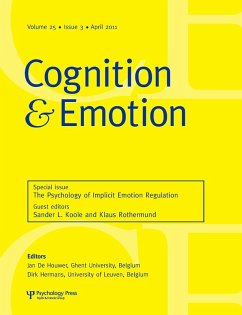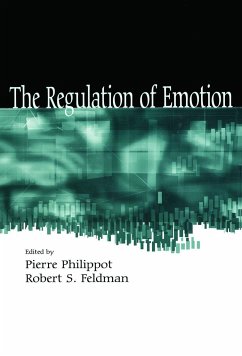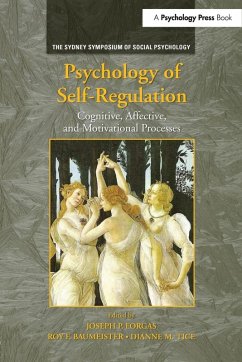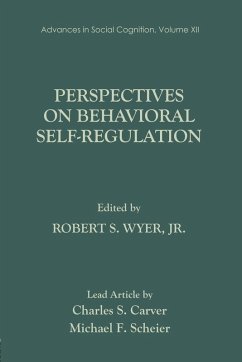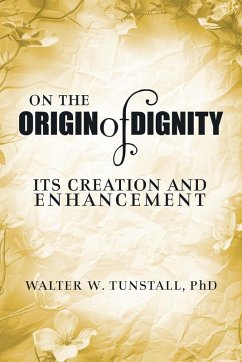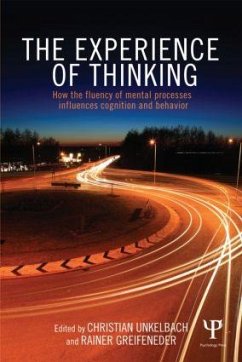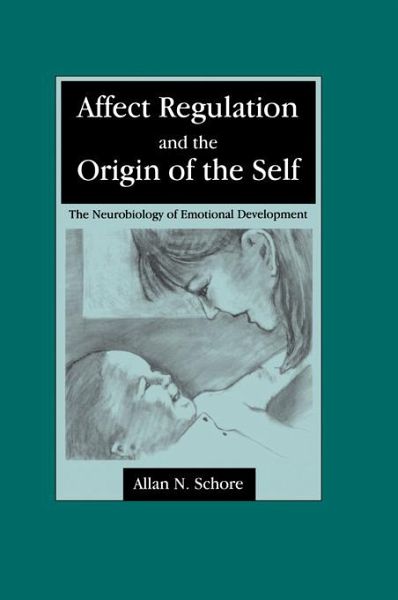
Affect Regulation and the Origin of the Self
The Neurobiology of Emotional Development
Versandkostenfrei!
Versandfertig in 1-2 Wochen
123,99 €
inkl. MwSt.
Weitere Ausgaben:

PAYBACK Punkte
62 °P sammeln!
During the past decade a diverse group of disciplines have simultaneously intensified their attention upon the scientific study of emotion. This proliferation of research on affective phenomena has been paralleled by an acceleration of investigations of early human structural and functional development. Developmental neuroscience is now delving into the ontogeny of brain systems that evolve to support the psychobiological underpinnings of socioemotional functioning. Studies of the infant brain demonstrate that its maturation is influenced by the environment and is experience-dependent. Develop...
During the past decade a diverse group of disciplines have simultaneously intensified their attention upon the scientific study of emotion. This proliferation of research on affective phenomena has been paralleled by an acceleration of investigations of early human structural and functional development. Developmental neuroscience is now delving into the ontogeny of brain systems that evolve to support the psychobiological underpinnings of socioemotional functioning. Studies of the infant brain demonstrate that its maturation is influenced by the environment and is experience-dependent. Developmental psychological research emphasizes that the infant's expanding socioaffective functions are critically influenced by the affect-transacting experiences it has with the primary caregiver. Concurrent developmental psychoanalytic research suggests that the mother's affect regulatory functions permanently shape the emerging self's capacity for self-organization. Studies of incipient relational processes and their effects on developing structure are thus an excellent paradigm for the deeper apprehension of the organization and dynamics of affective phenomena. This book brings together and presents the latest findings of socioemotional studies emerging from the developmental branches of various disciplines. It supplies psychological researchers and clinicians with relevant, up-to-date developmental neurobiological findings and insights, and exposes neuroscientists to recent developmental psychological and psychoanalytic studies of infants. The methodology of this theoretical research involves the integration of information that is being generated by the different fields that are studying the problem of socioaffective development--neurobiology, behavioral neurology, behavioral biology, sociobiology, social psychology, developmental psychology, developmental psychoanalysis, and infant psychiatry. A special emphasis is placed upon the application and incorporation of current developmental data from neurochemistry, neuroanatomy, neuropsychology, and neuroendocrinology into the main body of developmental theory. More than just a review of several literatures, the studies cited in this work are used as a multidisciplinary source pool of experimental data, theoretical concepts, and clinical observations that form the base and scaffolding of an overarching heuristic model of socioemotional development that is grounded in contemporary neuroscience. This psychoneurobiological model is then used to generate a number of heuristic hypotheses regarding the proximal causes of a wide array of affect-related phenomena--from the motive force that drives human attachment to the proximal causes of psychiatric disturbances and psychosomatic disorders, and indeed to the origin of the self.





